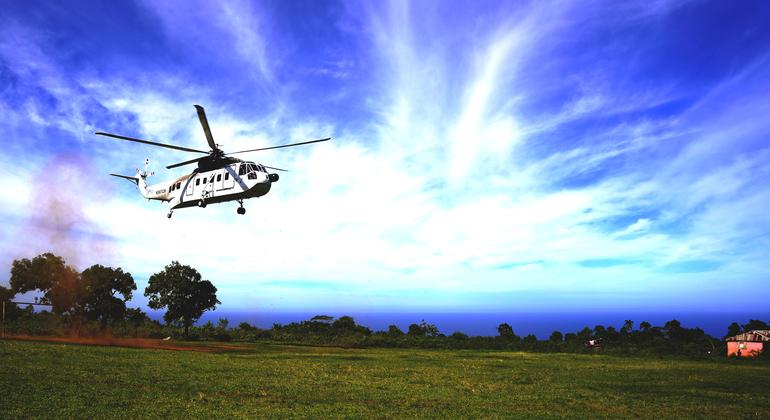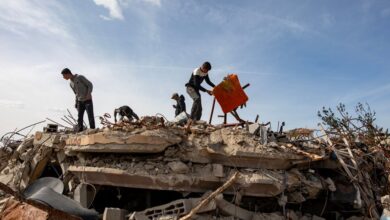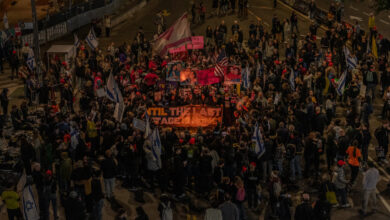Dealing with flying ‘unknowns’ in high-conflict Haiti

Haiti’s capital, Port-au-Prince, is mired in unrest due to gang violence and is now home to UNHAS, administered by the United Nations World Food Program (WFP) is the only option for humanitarian workers to travel safely in and out of the city and to transport and distribute critical equipment and relief aid within the country.
Robine JNBaptise, who works for UNHAS, and Christine Blais, who works for Construction Helicopters, the aviation company that operates the aircraft, spoke to UN News about their experiences working in high conflict areas.
Robine JNBaptise: We have two aircraft in Haiti – a helicopter that can carry about 19 people or can carry two tons or cargo and a 45 fixed-wing jet that can carry nine people. I’m an airline and reservations assistant, so I’m responsible for getting people on and off the plane. I also assist with management and ensure operating licenses.
Christine Blais: I worked as an airplane mechanic and crew chief on flights around Haiti. On any given day, we’ll fly from two to six hours. Our aircraft are currently based in Cap Haitien, but we have flown out of Turks and Caicos as well as the Dominican Republic.
Robine JNBaptise: It’s a stressful job but luckily for me I perform very well under pressure. On some days we help up to 100 people, mostly [non-governmental organisation] NGO staff, but also UN staff. We are moving people to safer parts of the country, while bringing essential workers back to Port-au-Prince. We relocated about 200 people to locations outside of Haiti, so all in all it was a job worth doing.
Christine Blais: When landing in Port-au-Prince, we keep time on the ground to a minimum to minimize risk. We can land, load and take off in two to five minutes, which is very fast. We have a very good ground team ensuring our safety. In a conflict-ridden region, we must remain flexible while responding to the needs of the United Nations.

A helicopter flies over an urban area in Haiti.
Robine JNBaptise: One of the big challenges we faced was flying over Port-au-Prince, where gangs were fighting or with the police. There was always the risk of one of our planes being hit by stray fire, although I don’t think our planes were being deliberately targeted.
Christine Blais: My colleagues were at the international airport when the security breach occurred. It was definitely a dangerous and scary moment for them when gunshots rang out while they were working on the plane. A commercial plane that was on the ground at the time was hit.
Robine JNBaptise: The international airport was closed for several weeks so we set up the landing zone elsewhere. A major concern is that gangs could move into the area and take over the landing zone, which would bring our operations to a halt.
This can be a scary job, but we are now used to the dangers and stress, although we make sure not to take any risks. I had to remember that anything could happen to me or the plane.
Christine Blais: In high conflict areas, there are always unknowns and we must always be aware of threats. I rely a lot on our team and understand that if something happens, you just deal with it as it happens.

A passenger arrives on a UNHAS helicopter.
Robine JNBaptise: The service we are providing is truly a lifesaver, so if our landing site was closed it would be catastrophic. At UNHAS, we always need to remind people that we are a humanitarian organization and we do not take sides. Our role is to transport humanitarian workers and relief aid to help people in crisis.
I never thought about leaving the country. If I leave, who will stay? As a Haitian and a humanitarian, I want to be here and help bring the country back to the way it was.
At some point, the situation will improve because when we reach rock bottom, there is nowhere else to go but up. This is my home and I want to be part of a brighter future for Haiti.




